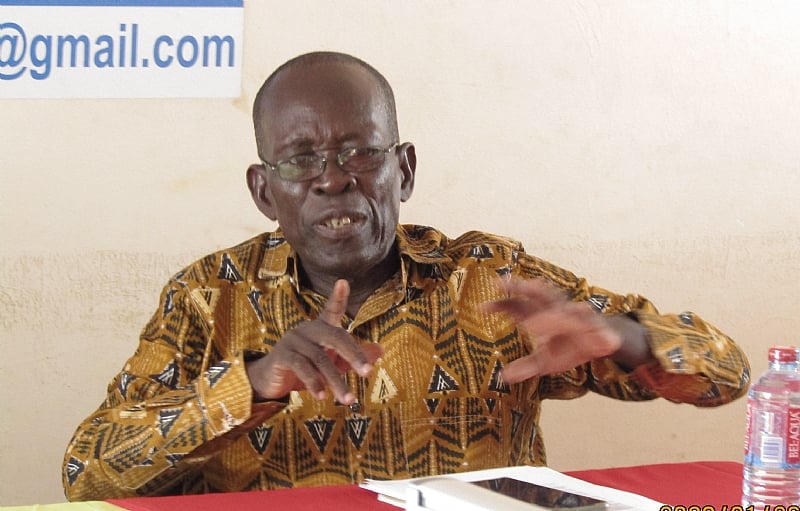The escalating use of inflammatory and divisive rhetoric on social media by political figures in Ghana has prompted a concerned call to action from the Ghana Federation of Labour (GFL). Mr. Abraham Koomson, the Secretary General of the GFL, has specifically urged the Councils of Elders within the major political parties, particularly the National Democratic Congress (NDC) and the New Patriotic Party (NPP), to exert their influence and curb this detrimental trend. He underscores the responsibility these Councils have to uphold the principles of civil discourse and ensure their members contribute positively to Ghana’s democratic growth. Mr. Koomson laments the unfortunate normalization of this behavior, emphasizing its potential to disrupt the nation’s progress and stability.
Mr. Koomson’s appeal highlights the corrosive impact of uncivil discourse on Ghana’s political landscape. He notes that the increasing tendency, especially amongst younger politicians and even established figures, to resort to insults and personal attacks on social and traditional media platforms is a worrying development. He emphasizes that Ghanaian cultural norms traditionally reject such disrespectful language, particularly when directed towards elders, leaders, and traditional authorities. The GFL Secretary General criticizes the growing normalization of this behavior, warning that it sets a dangerous precedent for future generations and erodes the fabric of respectful dialogue necessary for a healthy democracy.
Beyond the political sphere, Mr. Koomson extends his call to action to religious and traditional leaders, recognizing the influence they hold over individuals within their respective communities. He stresses that many of those engaging in this destructive online behavior are affiliated with religious faiths, and thus, the intervention of religious figures like pastors and imams is crucial. He urges them to counsel their members involved in the political arena to uphold standards of decorum and avoid actions that could tarnish the image of their faiths. This multifaceted approach underscores the importance of collective responsibility in tackling this societal challenge.
The media also comes under scrutiny in Mr. Koomson’s plea. He appeals to media organizations to exercise greater caution in publishing inflammatory comments and resist the temptation to sensationalize divisive rhetoric. He charges media owners with the responsibility of preventing their platforms from becoming conduits for insults and personal attacks. He specifically calls upon regulatory bodies like the National Media Commission, the Ghana Journalists Association, and the Ghana Independent Broadcasters Association to collaborate in protecting the integrity of the media and upholding the principles of free speech as enshrined in the 1992 Constitution. However, he clarifies that free speech should not be misconstrued as a license for irresponsible pronouncements, emphasizing the media’s role as gatekeepers of responsible public discourse.
Mr. Koomson’s concern stems from the observation that the media’s gatekeeping function is weakening, leading to an increase in the dissemination of inflammatory content. He emphasizes the need to restore the media’s role as a filter for responsible public discourse, arguing that the current trend of unchecked online negativity poses a serious threat to Ghana’s democratic development. He advocates for a renewed commitment from media practitioners to adhere to their ethical obligations and prioritize responsible reporting over sensationalism. This, he believes, is essential for fostering a climate of informed and respectful dialogue.
Finally, Mr. Koomson underscores the importance of collaborative action from all stakeholders in promoting a culture of civility and respect within the Ghanaian political landscape. He particularly encourages civil society organizations (CSOs) to play a more active role in holding political parties accountable for the behavior of their members. He warns against passive observation, urging CSOs to leverage their influence and speak out against the growing trend of uncivil political discourse. He believes that a collective effort from all sectors of society, including political parties, religious institutions, the media, and civil society, is essential to curb this destructive trend and ensure that Ghana’s democratic progress remains on track. He argues that this collective action will be instrumental in preserving the peace and stability that are crucial for a thriving democracy.


